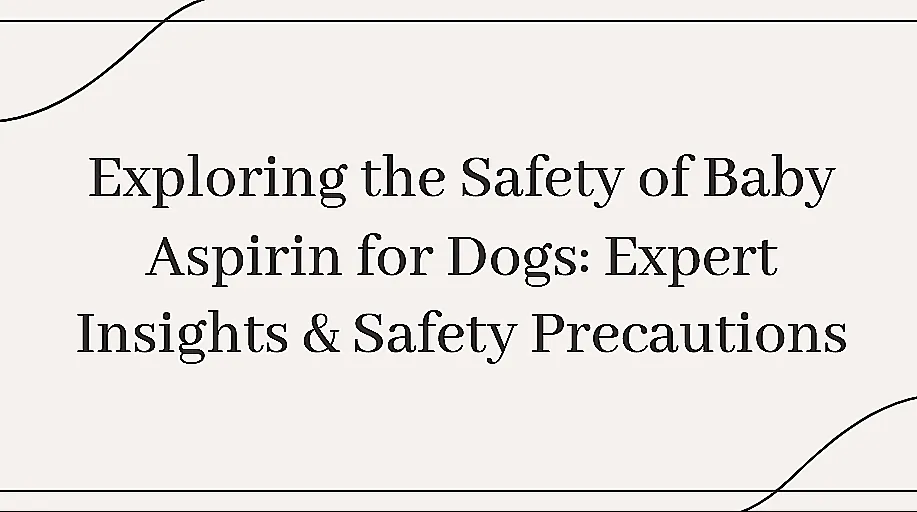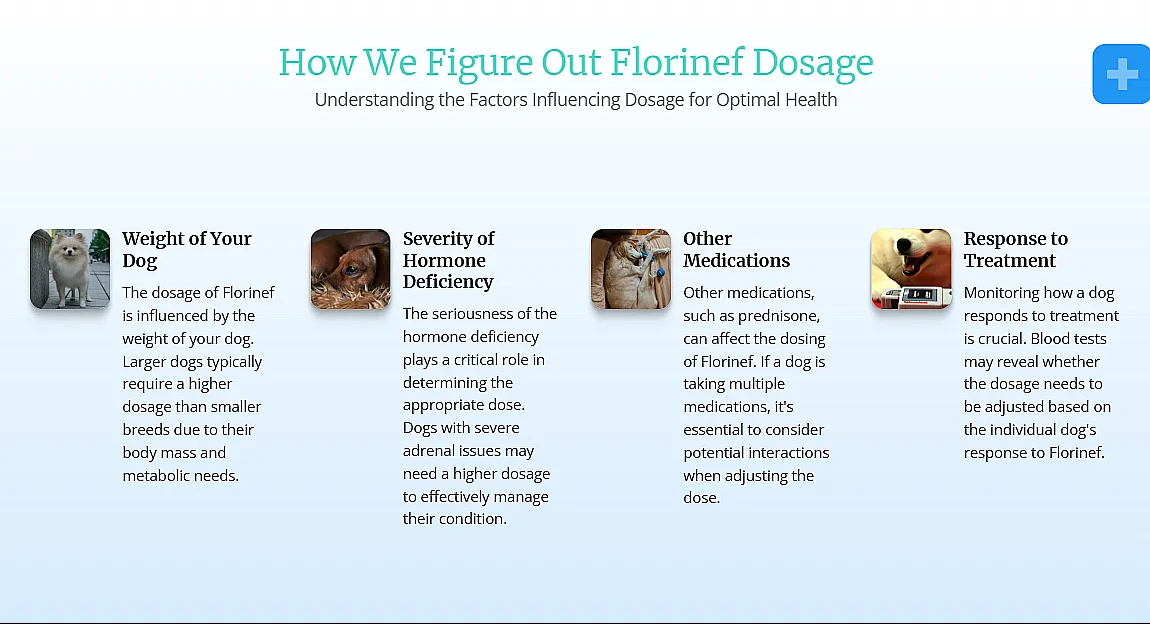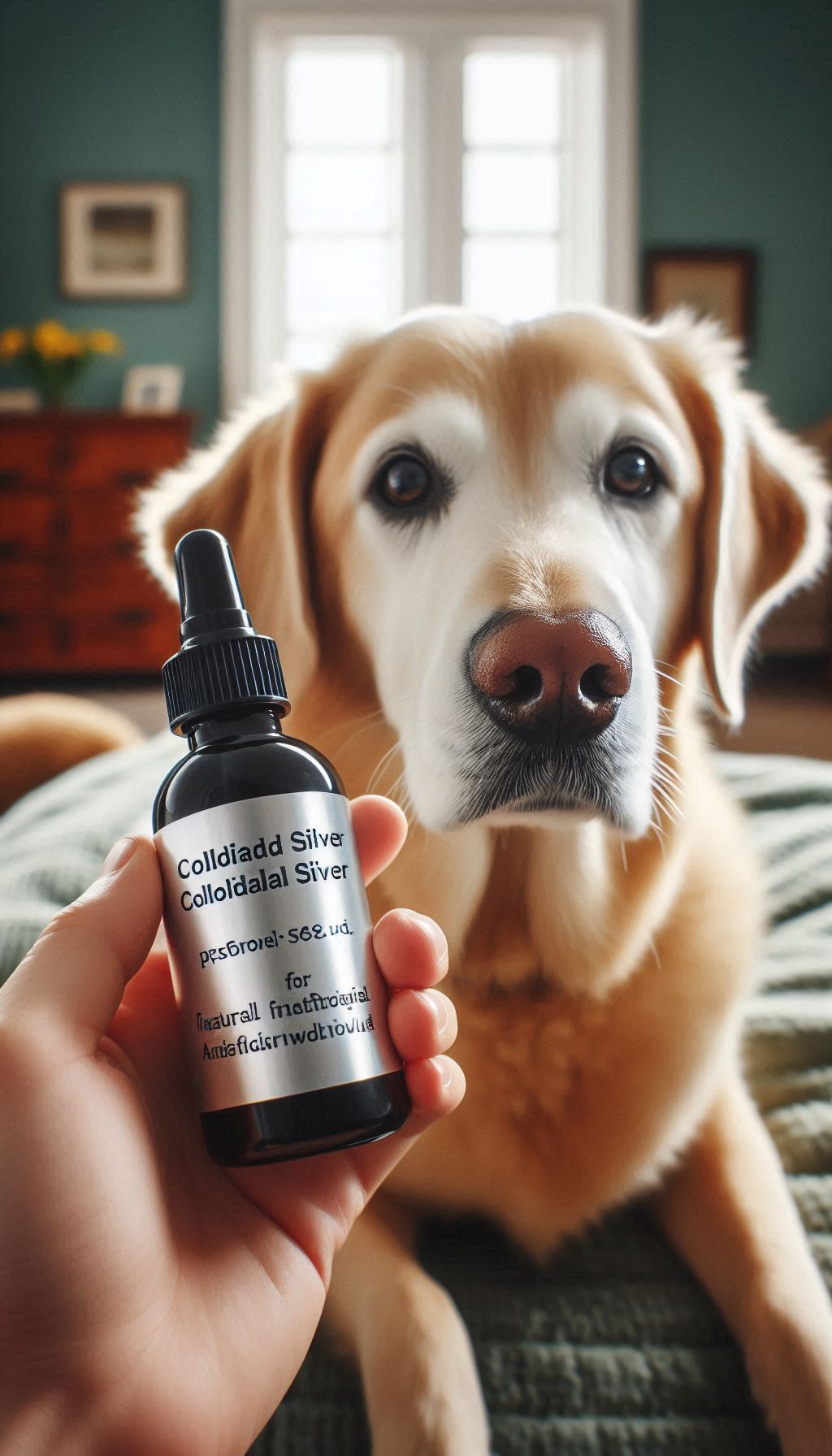When considering pain relief for your beloved canine companion, you might contemplate reaching for that bottle of baby aspirin. You understand the need to alleviate your pet’s discomfort but it’s crucial to approach this matter with caution and knowledge.
What is Baby Aspirin?

Baby aspirin is a lower-dose form of aspirin typically used as a preventative measure for heart issues in humans. Its reduced strength might lead you to believe that it’s a safer option for your four-legged friend. However, before you consider administering baby aspirin to your dog, you need to be aware of the potential risks and consult with a veterinarian for professional guidance.
Purpose of Using Baby Aspirin for Dogs
While the intention behind using baby aspirin is to relieve pain, you must understand that dogs metabolize medications differently from humans. Aspirin, even in low doses, can cause significant health issues for your dog, including gastric ulcers or liver and kidney damage. Furthermore, the enteric coating on human aspirin, designed to protect our stomachs, does not dissolve properly in a dog’s digestive system, leading to unpredictable results and potential failure to relieve discomfort. Therefore, always prioritize your dog’s safety and consult with your vet for appropriate pain management options tailored for your pet’s specific needs.
Understanding Canine Health
You might be under the impression that baby aspirin could be a safe remedy for your dog’s pain just as it is for humans. However, it’s critical for you to grasp the differences between human and canine physiology and why certain human medications, including aspirin, can be harmful to dogs.
Differences between human and canine physiology
Firstly, dogs metabolize drugs differently than humans, meaning the breakdown and excretion of aspirin can greatly differ, often leading to unforeseen side effects. While you might think a smaller dose of aspirin, like baby aspirin, would be harmless, it can still be dangerous. Dogs are simply not small people in fur suits; their bodies do not handle medications in the same way ours do. This is why medication dosage and safety can’t be directly translated from human to veterinary use without professional direction.
Importance of consulting a veterinarian
Moreover, it’s crucial to consult with a veterinarian before giving any medication like aspirin to your dog. A vet will take into account your dog’s specific health profile, potential drug interactions with any other medications, and whether certain conditions, like pregnancy, preclude the use of aspirin altogether. Even if you think you’re using a ‘safe’ low dose, it could still cause substantial harm such as gastric ulcers or impair renal and liver function in your dog. Consequently, always rely on the guidance of your veterinarian to determine the safest and most effective pain relief for your furry friend.
Baby Aspirin and Dogs
Concerned about your dog’s discomfort, you might contemplate if baby aspirin is an appropriate intervention. Given that baby aspirin is a lower dose of aspirin intended for humans, it may seem like a potentially safe option for your pet in small amounts. Yet, it’s critical to understand how a medication designed for human physiology will affect your canine.
How baby aspirin affects dogs
While aspirin, including baby aspirin, is an NSAID and may temporarily relieve pain, self-medicating your dog without veterinary advice is risky. Dogs react differently to medications than humans do. Baby aspirin can be especially hard for canines to digest properly due to their inability to break down the protective coating designed for human stomachs. This could hinder its effectiveness and potentially cause gastrointestinal issues in your pet. Moreover, the incorrect dosage could be toxic and lead to serious complications.
Potential benefits and risks
In certain situations, a veterinarian might advise the use of baby aspirin under strict dosing guidelines. The potential benefits include pain relief and reduced inflammation. However, the risks are significant and include gastric ulcers, bleeding disorders, and kidney or liver damage. The balance between benefits and risks should be evaluated carefully by a professional. Never give your dog baby aspirin—or any other over-the-counter medication—without consulting with your veterinarian, who may prescribe aspirin specifically formulated for dogs, which is typically safer and more effective.
Appropriate Dosage and Administration
When considering any medication for your beloved pet, precise dosage and strict adherence to administration guidelines are imperative. Baby aspirin is no exception, and when used judiciously under veterinary guidance, it could provide some relief for your furry friend. But is baby aspirin safe for dogs?
Recommended dosage for dogs
The recommended aspirin dosage for dogs generally falls between 10-40mg/kg, depending on the specific circumstances and health condition of your pet. However, this guideline is not a one-size-fits-all solution. Only a qualified veterinarian can accurately determine the safe and effective dosage for your dog based on several factors, including weight, age, underlying health issues, and the nature of the condition being treated.
Safety precautions and guidelines
It is crucial to remember that safety is paramount when administering any medication to dogs. Overdosing can have fatal consequences. Therefore, always seek professional veterinary advice before giving your dog baby aspirin or any other medication. A thorough examination by your veterinarian will ensure that the benefits outweigh the risks. If aspirin is deemed appropriate for your dog, your vet will advise on whether a prescription is necessary or if human baby aspirin at a specific dosage is suitable. Ensure that you keep a keen eye on your dog for any adverse reactions and follow all safety precautions to the letter to safeguard the health of your canine companion.
Conditions That May Benefit from Baby Aspirin
Understanding the potential applications of baby aspirin for your dog’s health is crucial to providing them with effective care. While baby aspirin can be a useful medication under specific conditions, its use must be both judicious and monitored closely.
Arthritis and Joint Pain
If you notice that your dog is limping, showing stiffness, or has difficulty getting up, they might be suffering from arthritis or other forms of joint pain. In such cases, veterinarians may recommend baby aspirin to help reduce inflammation and provide pain relief. The anti-inflammatory properties of aspirin can indeed offer a reprieve to your dog, aiding in the improvement of mobility and quality of life. However, it’s imperative to use it under strict veterinary supervision to avoid potential complications and ensure the correct dosage.
Fever Reduction
Moreover, baby aspirin may occasionally be used to help reduce fever in dogs. Since a fever can be symptomatic of underlying health issues, it is important to seek veterinary advice before administering aspirin. Your vet can identify the cause of the fever and determine whether aspirin is an appropriate course of action. Remember, self-medicating without professional guidance can aggravate your dog’s condition rather than help it.
Ultimately, while baby aspirin can provide relief in certain situations, safety is non-negotiable. Prioritize veterinary input before considering aspirin as a remedy for your dog’s ailments. They will take into account your pet’s overall health profile before making a recommendation.
Potential Side Effects
When considering baby aspirin for your dog, it’s essential to be cognizant of the potential side effects. While baby aspirin is used in veterinary medicine for its anti-inflammatory and pain-relieving properties, not every dog will have the same reaction to this medication.
Allergic Reactions and Adverse Effects
As an attentive pet owner, you should be watchful for any signs of allergic reactions or adverse effects. Reactions can range from mild to severe and may include symptoms such as gastrointestinal upset, ulcers, or even kidney and liver problems. Since dogs process medications differently than humans, it’s critical to never administer baby aspirin—or any medication—without consulting your veterinarian. Keep an eye out for any signs of discomfort, such as vomiting, diarrhea, changes in appetite, or black, tarry stools, which call for immediate veterinary attention.
Monitoring for Symptoms and Seeking Veterinary Care
Monitoring your dog closely after they have been given baby aspirin is key. You know your dog best and are most likely to detect subtle changes in their behavior or well-being. If your dog exhibits any unusual symptoms, or if you suspect they may have received an overdose, it’s imperative to contact your vet promptly. Timely veterinary intervention can make all the difference in managing your dog’s response to aspirin, ensuring their safety and health.
Remember, the well-being of your furry companion is paramount. Use baby aspirin for your dog only under veterinary direction and with the utmost caution to safeguard their health.
Alternative Options
Now that you’re equipped with the knowledge of baby aspirin’s potential risks for your canine friend, you might be seeking safer alternatives for managing pain and inflammation. It’s important to tread carefully because what works for humans doesn’t necessarily work for dogs. Let’s delve into natural remedies and non-aspirin alternatives that can soothe your pet without the associated risks of baby aspirin.
Natural Remedies for Pain and Inflammation
Natural options are often gentler on your dog’s system with fewer side effects. Herbs like turmeric possess anti-inflammatory properties and can be a wholesome addition to your dog’s diet. Omega-3 fatty acids found in fish oil are also excellent for reducing inflammation. Additionally, therapies such as massage, acupuncture, and physical therapy can provide relief without the need for drugs.
Non-Aspirin Alternatives for Dogs
If you’re looking for non-aspirin pharmaceutical alternatives, there are vet-prescribed medications specifically designed for dogs that are much safer than baby aspirin. These include non-steroidal anti-inflammatory drugs (NSAIDs) made for dogs, which target inflammation and pain more accurately. As always, it’s critical to consult with your veterinarian before introducing any new medication or supplement into your dog’s regimen. Your vet can provide tailored advice that takes into account your dog’s unique needs and medical history, thereby ensuring the highest standard of care for your beloved pet.
Consultation with Veterinarian
As a responsible dog owner, your top priority is the health and wellbeing of your pet. When faced with the question, “Is baby aspirin safe for dogs?” the best action is to consult with a veterinarian. This professional guidance is invaluable when it comes to your dog’s health and can help prevent complications that could arise from self-medicating with products like baby aspirin.
Importance of Professional Guidance
Understanding that each dog is unique is key to administering treatment that is both safe and effective. Your veterinarian’s expertise ensures that your dog receives a dosage that is tailored to their specific weight, health status, and medical history. Moreover, they can monitor and manage any side effects that may occur. A professional can also confirm whether baby aspirin is compatible with any other medications your dog may be taking, thereby diminishing the risk of adverse reactions.
Discussing Individual Dog’s Specific Needs
During your consultation, your veterinarian will assess your dog’s specific needs. This discussion will cover not only the immediate concern, such as pain or inflammation, but also your pet’s overall long-term health strategy. Your vet may suggest safer alternatives to baby aspirin, such as canine-specific NSAIDs or other pain management strategies that align better with your dog’s health needs. Remember: although baby aspirin can be administered to dogs under certain conditions, seeking professional advice is crucial to ensure you’re making the best choice for your dog’s health and happiness.
The Benefits of Consulting with a Veterinarian
Expert Guidance and Individualized Treatment
When it comes to your furry friend’s health, seeking professional guidance from a veterinarian is essential. Veterinarians have the knowledge and expertise to provide personalized treatment plans tailored to your dog’s specific needs. They will take into account factors such as your dog’s weight, health status, and medical history to determine the appropriate dosage and medication. This level of individualized care ensures that your dog receives safe and effective treatment.
Monitoring and Management of Side Effects
By consulting with a veterinarian, you are ensuring that any potential side effects of a medication like baby aspirin can be closely monitored and managed. Veterinarians are trained to identify and address adverse reactions promptly, preventing complications or harm to your pet.
Exploring Alternatives
During your consultation, your veterinarian will discuss your dog’s overall health strategy and may suggest alternative treatment options that are safer and more suitable for your dog’s specific conditions. They may recommend canine-specific NSAIDs or other pain management strategies that align better with your dog’s health needs. This thorough assessment ensures that you are making the best choice for your dog’s overall well-being.
Remember, no matter how well-intentioned, self-medicating your dog with products like baby aspirin can pose risks. Consulting with a veterinarian is the best way to ensure that your dog receives the proper care and treatment they deserve.











